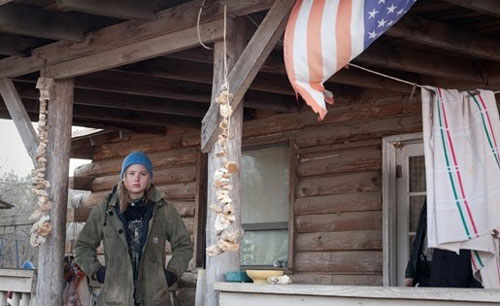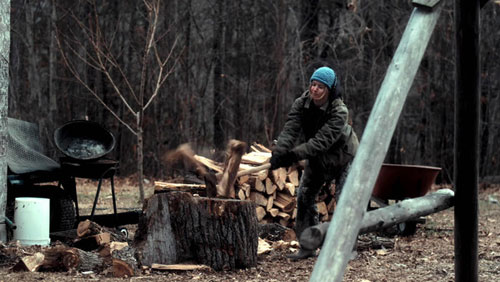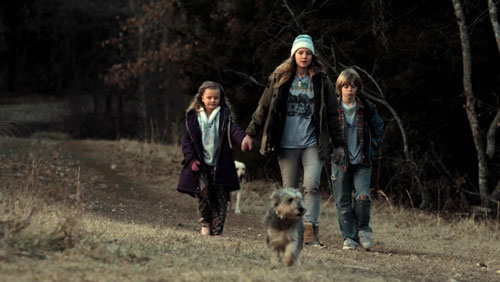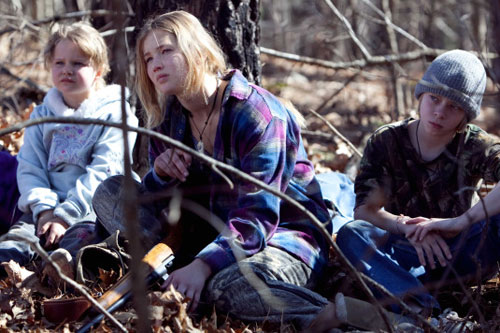|




Reviews
Winter's Bone is not your typical Hollywood offering. The film was made independently by director Debra Granik (Down to the Bone) and had no distribution until it won both the Best Picture and Best Screenplay prizes at this year's Sundance Festival. It was filmed entirely on location in Branson, Missouri, and boasts not a single A-list movie actor (although Lawrence is likely well on her way there should she chose a more mainstream path). From its raw, economical dialogue, to its appropriately spare soundtrack, to its naturalistic cinematography, Winter's Bone eschews the Hollywood ethos of shock and awe filmmaking for quiet, patient, nuanced storytelling. But it never gets lost in its own artiness or flaunts its indie credibility. The story and the characters are always served rather than eclipsed by the hundreds of lovingly tended details that make this film so rich.
Winter's Bone is not perfect. The plot gets confusing in the middle, when it's hard to figure out who's who amongst Ree's unsavory kin, all of whom seem to belong to a sort of Ozarks mafia. But the film's mood is maintained so consistently that even when some of the plot details are not entirely clear, the confusion arguably serves to heighten the suspense. Likewise, although I find myself wanting to complain about a certain lack of clarity as to the nature of some of the characters (they seem capable of contradictory compassion and cruelty, and motives are seldom clear), I recognize that such ambiguity is what makes this film much less like Hollywood and much more like real life.
By Carolyn Arends, from Christianity Today
One of the joys of this film is its refusal to let the audience rest in lazy certainties, either of character or plot. Ree, for example, has an uncle called Teardrop (John Hawkes) an emaciated crank addict prone to sudden violence. As the film continues, however, he unexpectedly displays a kind of crazed courage in defending his last shreds of family and of honor.
There is an aesthetic beauty, too, in the distinctive cadences of Ozark speech, and its songs and music-making by flickering light, that reclaims the culture from the popular parodies of boss-eyed hillbillies to be found in comedies and horror films.
This is a superb film – original and enthralling – in which the bleakness is slivered with a welcome seam of hope. Ree tells her siblings, who are fearful of abandonment: 'I'd be lost without the weight of you two on my back', and I can't think of a more graceful acknowledgement of need, and reassurance that it will be met.
By Sukhdev Sandhu, from The Daily Telegraph
|


Go to Forum >>0 Comments